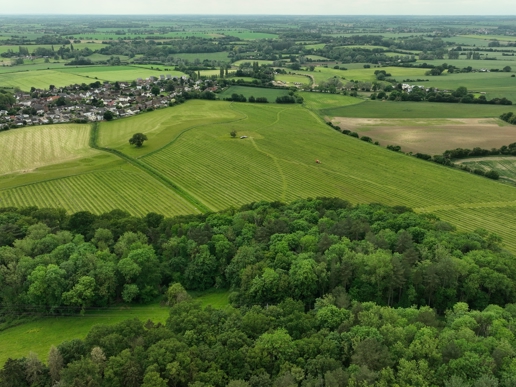Business can be the friend, not the enemy, of biodiversity

Reproduced with permission from The Times Enterprise Network. To subscribe click here.
Part of achieving climate and environmental balance is protecting biodiversity, species and natural habitats. Trees act as great carbon sinks. Three quarters of the world’s flowering plants and about 35 per cent of the world’s food crops depend on animal pollinators to reproduce. Yet biodiversity loss has never been worse. The UN predicts that one million of the eight million species on the planet will be extinct by 2039. In the UK, intensive farming and forestry, combined with increased pollution, resource exploitation, and transport and urban extension have resulted in an accelerated decline in biodiversity.
Biodiversity imbalances contribute to climate change and environmental instability. It affects us all — as individuals and as businesses. And we can all do something about it.
In April, Ground Control purchased 300 acres of degraded Essex farmland. It wasn’t to join Jeremy Clarkson and become farmers, but simply to support our environment. Our plan is that it will serve as a road map for our customers and other landowners on how to be better stewards of land for nature. As a business that maintains 55,000 commercial properties around the UK, we want to work with our customers to reimagine land management. We are creating the Wildfell Centre for Environmental Recovery on the land and will showcase best practices for habitat creation, biodiversity net gain and carbon sequestration.
This isn’t a side project for Ground Control. If we can promote a focus on supporting biodiversity and natural habitats, we will create more resilient ecosystems to support more sustainable businesses. More of our food will be locally sourced. Towns and cities will be greener, which will promote more active lifestyles and travel — improving health, wellbeing and air quality. All of this will have a naturally positive impact on levels of carbon, too. Many of our blue-chip customers are already committing to changing the way they care for and invest in land and we want to be partners in that innovation.
We’re really excited about the impact of our Wildfell project — but it’s also a commercial venture. We paid £2 million for the 300 acres, but believe we can break even or make a long-term profit. Partnerships with the Forestry Commission and others will help to fund tree planting. We believe that income streams from carbon and natural credits (a scheme for these is yet to be defined but is surely on the way), along with sponsorship and training opportunities, will ensure sustainability of the centre.
To mark the centre’s launch earlier this month, 70 sustainability leaders from organisations that we work with such as JLL, Guinness, Fujitsu, Aviva and Network Rail attended our “Green Gains Live” event to discuss ways to better utilise their land, learn from evidence-based trials in sequestering carbon and increase biodiversity within their landbank.
Caring about the planet can be profitable, too. Along with installing 10,000 electric vehicle charging stations to support our customers’ transition to battery operated fleets, we have created hundreds of miles of pollinator pathways for Highways England and innovative ecological areas for some of our best-known companies. With L’Oréal, we enhanced the biodiversity value of their operational sites by installing invertebrate habitats, bird nesting boxes (including versions with inbuilt cameras), wildflower seeding and bird feeders. Our revenue from new business that aids nature’s recovery now exceeds £10 million a year.
I’m not saying that all businesses should be investing in biodiversity initiatives. But there are ways for all businesses to minimise their impact on the planet. Measure and reduce your carbon footprint and switch to green energy; use sustainably sourced materials where possible; reduce your waste and try to send zero waste to landfill. Reimagine your business services and products to enhance rather than degrade nature. Your clients will be delighted.
Secondly, don’t overlook the huge potential nature plays in bringing people together and building positive relationships. If you have company land or gardens, for example, think about whether you can start a conservation or wilding project, however small — it’s a fantastic way to boost engagement with your employees. Look for the potential synergies with clients, suppliers and the communities where you operate to find common ground, build partnerships and increase engagement with each other.
“If you want to go fast, go alone. But if you want to go far, go together” — as the proverb advises. That’s what we need to do in caring for the biodiversity of our planet. There are gains to be made for businesses too.

Why the landscape industry must lead the ESG charge

Beat the budget blues by becoming your own disruptor




